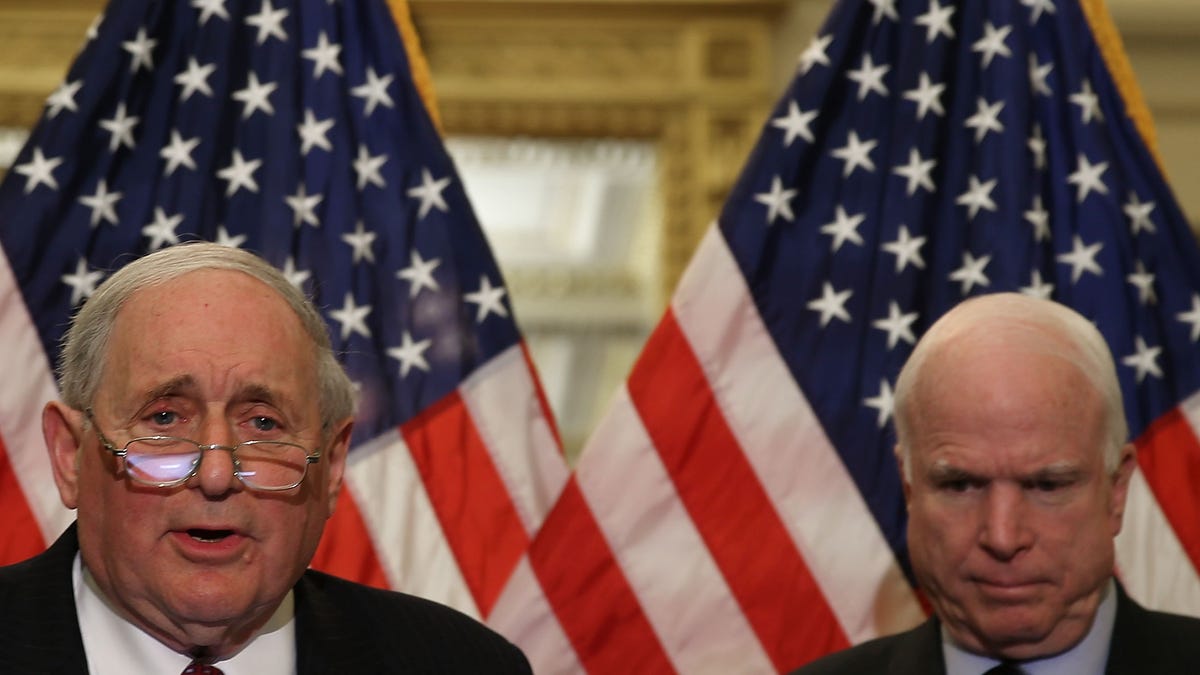Lawmakers lambaste Apple's tax strategy as 'an absurdity'
As CEO Tim Cook prepares to testify before a congressional subcommittee, senators portray Apple as having exploited tax loopholes to escape paying its fair share.

Apple came in for a bipartisan beating on Tuesday as senators portrayed the company as a global tax avoider which exploited loopholes in the system to escape paying its fair share.
Apple CEO Tim Cook is scheduled to appear this morning before the Senate's Permanent Subcommittee on Investigations. But before then, he had to listen in silence as the leading Democrat and Republican lambasted Apple for working the system in a way they said was unfair, if not unpatriotic.
Read more: Prepared testimony of witnesses
Michigan Democrat Carl Levin, who is chairman of the subcommittee, said that Apple had created "a highly developed tax avoidance system" as he opened the morning's hearings with a detailed recounting of how he said the company had exploited "an absurdity" to reduce paying taxes overseas.
During his prepared remarks, Levin leaned heavily on the findings of a report the subcommittee released on Monday detailing how Apple has worked the system to reduce its annual tax bill. The report described how Apple has used corporate structures set up in myriad countries that allow it to exist as a resident of nowhere so that it pays very little corporate tax on its international revenue. Indeed, the Senate report noted that Apple's Irish subsidiary earned $22 billion in 2011. However, it wound up paying $10 million in taxes.
Levin amplified on those findings, noting that Apple Operations International in Ireland helped the company avoid paying United States taxes. "Magically it is neither here nor there," regarding taxes.
Arizona Sen. John McCain sounded a similar theme, saying the current system reflected "a flawed corporate tax system," which allows corporations to shift money around the globe to low-tax jurisdictions and called Apple "one of the biggest tax avoiders in America."
McCain said that Apple's tax strategy had hurt the U.S. during a period in its history, marked by federal cutbacks linked to budgetary sequestration, declaring that "the American people will not tolerate it."
"Apple's three primary Irish entities hold 60 percent of the company's profits but claim to be tax residents nowhere in the world," he said, adding that it was "completely outrageous" that Apple has managed to avoid paying taxes at home and abroad.
Ahead of Cook's appearance, Apple on Monday posted his full testimony, rejecting charges that it used tax gimmicks and was, in fact, a job creator.
But Prof. J. Richard Harvey, a tax expert from Villanova Law School who also testified before the subcommittee, said that he nearly "fell off my chair" when he read Apple's testimony asserting the company does not use tax gimmicks. Rather, he said, Apple had shifted 64 percent of its 2011 income into an entity with "no real employees and no real activity."
As the morning's hearings progressed, Wall Street sold off on the news with Apple's stock down almost 2 percent in mid-morning trading.

